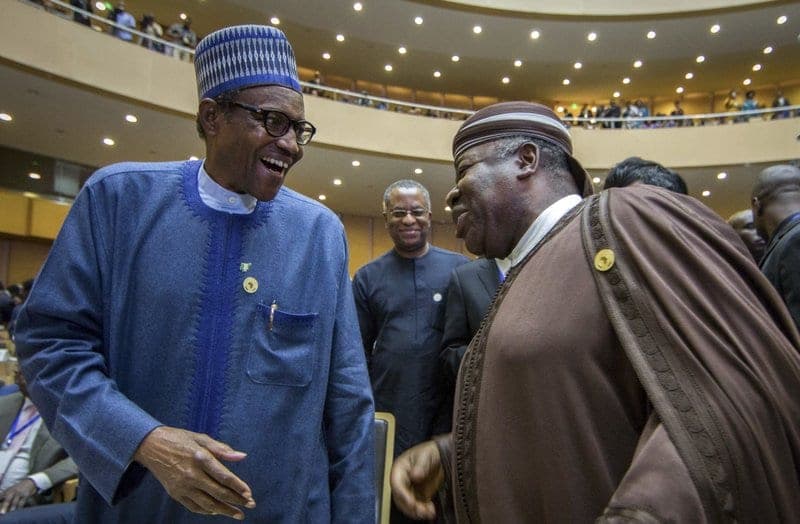YAOUNDÉ, Cameroon – Bishops in Nigeria are echoing Pope Francis’s call to reject fake news, saying it is detrimental to binding society together.
Francis made “fake news” the focus of his message for the 52nd Vatican-sponsored World Communications Day, to be marked on May 13, on the Sunday previous to Pentecost. The theme he chose for the 2018 commemoration is “‘The truth will set you free’ (Jn 8:32). Fake news and journalism for peace.”
The pontiff acknowledged that the term fake news has been the object of debate. However, in general, “it refers to the spreading of disinformation online or in the traditional media.”
Fake news, Francis wrote, has to do with false information that is based on non-existent or distorted data and that is meant to deceive and manipulate the reader.
“Spreading fake news can serve to advance specific goals, influence political decisions, and serve economic interests,” he wrote.
It is a sign of “intolerant and hypersensitive attitudes,” leading only to the spread of “arrogance and hatred.”
The term “fake news” came into fashion after U.S. President Donald Trump used it to describe any news he found unfavorable to himself.
Trump even released the “Fake News Awards,” presented on the GOP webpage as a response to 2017’s “unrelenting bias, unfair news coverage, and even downright fake news. Studies have shown that over 90 percent of the media’s coverage of President Trump is negative.”
The bishops of the Ibadan Ecclesiastical Province of the Catholic Bishops’ Conference of Nigeria (CBCN) are now saying “such news has already brought down families, associations, governments, even other institutions all over the world, and even destroyed many innocent lives.”
The province is located in the southwest of Nigeria, in the demographically mixed “middle belt” of the country.
The dangers of fake news and the lack of credible information is especially dangerous in the area, when false stories affecting religious or tribal issues could inflame the population.
In a communiqué issued at the end of their first provincial plenary meeting, the bishops said fake news was detrimental to the cohesive balm that binds society.
“The democratization of information and the instruments of media, all have almost unlimited access to the means and methods of dissemination. This has turned everyone into informers of almost equal status, regardless of their intention and objective,” the bishops said.
As a result, “fake news adversely affects practically all facets of modern society.” They said it was worrying that some credible institutions in the country “deploy fake news to achieve ends considered profitable to them.”
The bishops aren’t the only people concerned about the surge in fake news in Africa’s most populous nation. The Nigerian government has expressed similar concerns, going as far as requesting UNESCO’s help in fighting against the problem.
During the 39th Session of the General Conference of UNESCO in Paris, France, the Nigerian Minister of Information and Culture, Lai Mohammed, said fake news had eaten into the fabric of the Nigerian society.
He was speaking during discussions about UNESCO’s Plan of Action on Safety of Journalists and impunity, which seeks to “create a free and safe environment for journalists and media workers, both in conflict and non-conflict situations, with a view to strengthening peace, democracy and development worldwide.”
“Times are changing, and as much as we support that journalists must be protected and allowed to do their jobs without hindrance, we at the same time want UNESCO to consider the new menace of fake news and misrepresentations,” Mohammed said. “Fake news and misrepresentations, while they may not directly take lives, the consequences are also grave.”
Mohammed said there were instances of fake news in Nigeria in 2017 that were capable of “causing panic, triggering chaos or setting one group against the other.”
One such instance of “fake news” was a gory video of a blast that occurred many years ago, but which “was being circulated along with the false news of a bomb blast in Abuja, while news of a non-existent bomb blast in Lagos was also widely circulated.”
He said purveyors of fake news now attribute to top government officials or people of good standing in society untrue statements that could end up destabilizing the country.
“This is why we are appealing to Nigerians not to ever engage in a knee-jerk reaction to any news, and to subject every information to a very serious scrutiny by checking with security agencies and government spokespersons,” he said.
He then called on “UNESCO to lend its considerable weight in the fight against fake news.’’
In their message, the Nigerian bishops cautioned the country’s political class and the citizenry to step up vigilance against fake news, and said every citizen has the responsibility to double-check the authenticity of information before believing or disseminating it.
They warned that “anything built on falsehood eventually collapses. Only the truth can set us free.”
Inés San Martín in Rome contributed to this report.






